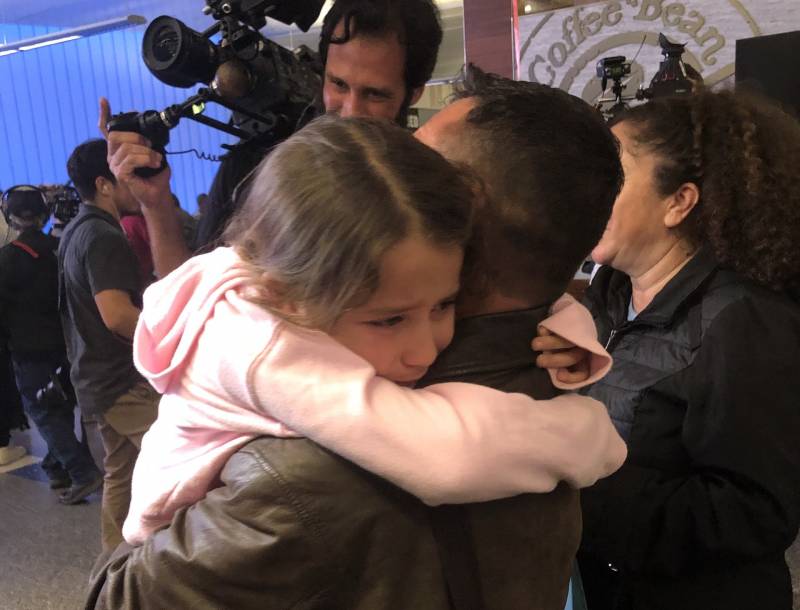According to his declaration to the court, Arredondo’s family fled Guatemala in February 2018 after his 17-year-old son, Marco, was murdered by alleged gang members. Arredondo and his wife feared they or their daughters would be next. Police would not protect them, he said.
The family sold their home and began the trek to the U.S., Arredondo said, but in Mexico, he and his 11-year-old daughter Andrea were stopped and questioned by authorities, and got separated from the rest of the family.
Arredondo’s wife, Cleivi Jerez, and daughters Keyli and Alison made it to the Texas border and passed an initial asylum screening, known as a “credible fear” interview. They were then allowed to join relatives in Los Angeles.
But when Arredondo and Andrea presented themselves to U.S. border officials in May 2018, he said, a crying Andrea was taken away while he protested. Arredondo was detained for three months, and did not pass his interview to establish a fear of returning to Guatemala, although his reasons were the same as his family’s. He was then deported.
Andrea spent about a month in a government-contracted shelter before she was released to her mother, according to Dakin-Grimm.
Back in Guatemala City, Arredondo said he was afraid the gang, known as Mara 18, would kill him. He said he couldn’t return to his old part of town, where he had worked as a taxi driver and participated in a neighborhood watch group of friends trying to protect their families. He said he believes that joining the group had made his family a target of the gang. On his return, Arredondo said, he survived on odd jobs, painting homes or doing construction work, while worrying about his family.
“It was very, very difficult,” he said. “After the deportation, I arrived in Guatemala with no money, no extra clothes, no home, and worst of all — no family. I spent entire nights unable to sleep, just thinking about them, hoping they were alright.”
While the Trump administration has stopped large-scale separations of migrant parents from their children, Department of Homeland Security officials are implementing new policies that have drastically reduced access to asylum for Central American migrants at the southern border.
One such policy, the Migrant Protection Protocols, has allowed authorities to return more than 57,000 non-Mexican asylum-seekers to Mexico to wait while their claims are processed in the U.S.
Only about 0.2% of the people in the program have won asylum since it began a year ago, compared to 29% of all asylum-seekers last year.

